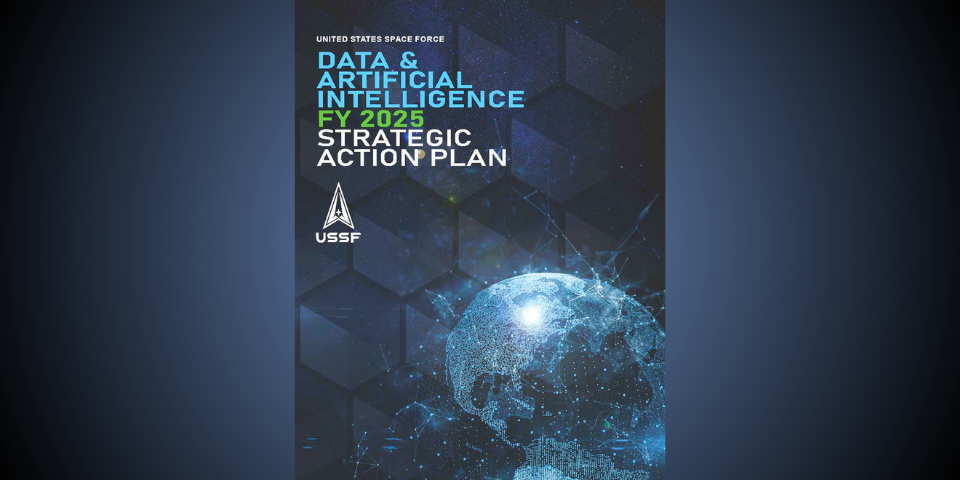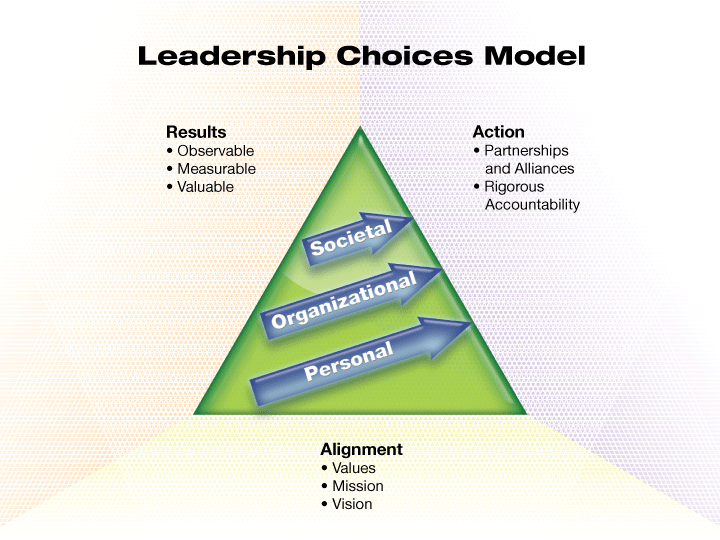
In our digital age, IT leadership is changing fast, thanks to artificial intelligence. A recent report says 84% of businesses think AI will help them stay competitive. This shows how important it is for IT leaders to keep up with AI trends. We're here to explore the AI world, looking at trends that are changing IT leadership. We'll provide insights to help you navigate this new landscape. From solutions by companies like Deepbrain AI and AI Studios to trends impacting US IT leaders, this guide is your resource for using AI in your organization. Let's see how you can turn challenges into opportunities with smart AI strategies!
Summary: Este artículo describe las tendencias clave de IA que transforman el liderazgo en TI y ofrece perspectivas estratégicas para líderes de TI en los Estados Unidos. También destaca soluciones pioneras en IA, como Deepbrain AI y AI Studios, y proporciona una sección de preguntas frecuentes.
Understanding the AI Landscape for IT Leaders
IT Leadership's Role in AI Integration
In the US, IT leaders are pivotal in transforming AI aspirations into tangible outcomes for businesses. Their responsibilities include:
- Aligning the organization: Ensuring that AI initiatives are in sync with the company's goals.
- Sparking product innovation: Encouraging the development of new, AI-driven products.
- Scaling AI technology responsibly: Implementing AI solutions that grow with the company while maintaining ethical standards.
A significant aspect of their role involves navigating complex regulations and adapting to evolving policies, particularly with initiatives like America's AI Action Plan.

IT leaders are also focused on integrating agentic AI systems, which autonomously manage complex tasks, enhancing operational efficiency and reducing errors. However, they must balance AI's autonomy with user control, ensuring that AI systems automate tasks seamlessly while allowing users to make the final decisions.
Emerging AI Trends Impacting IT Leadership
By 2025, AI and large language models (LLMs) have become ubiquitous, with a particular emphasis on specialized, domain-specific AI services. The rise of open-source LLMs is disrupting the landscape, enabling businesses to customize AI solutions to meet specific needs.
Agentic Process Automation (APA) is revolutionizing operations by allowing AI agents to manage workflows and learn from their interactions.
Concurrently, the US government's AI Action Plan is accelerating investments in AI infrastructure and talent, shaping business strategies.
Nearly 90% of business leaders recognize AI as crucial to their strategy in the coming years, underscoring the importance of AI adoption as a strategic necessity to maintain competitiveness. Enterprises must view AI as an essential strategy to retain their competitive edge.
For more insights on the role of IT leaders in the US and AI adoption as a strategic necessity, explore the provided resources.
Key AI Trends Transforming IT Leadership
Enhancing AI Reasoning and Decision-Making in IT Leadership
By 2025, AI's knack for reasoning and decision-making is set to shake up IT leadership. It's all about boosting efficiency and strategic planning. A significant trend is agentic AI, which takes on tasks and decisions autonomously, surpassing the capabilities of typical AI assistants. This shift is transforming roles and workflows within companies.

Leaders are now focusing on AI's improved reasoning and memory, which aids in complex decision-making. Nearly half of executives plan to scale AI to enhance current processes using generative and agentic AI. For instance, an IT leader might delegate routine decisions to AI, allowing their team to concentrate on strategic planning while AI manages data analysis and process improvements. Source.
The Impact of Agentic AI on IT Leadership
Agentic AI is gaining traction. Approximately 37% of U.S. IT leaders are already utilizing it, and 68% plan to invest soon. By the end of 2025, a quarter of companies employing generative AI will have implemented AI agents, with expectations for this to double by 2027.

This shift towards autonomous AI is revolutionizing workplace operations. Agentic AI supports employees by automating challenging tasks, enhancing productivity, and encouraging leaders to delegate more. For example, a company might deploy AI agents to manage customer service inquiries, allowing human staff to address more complex issues and develop strategies. Source.
Innovations in AI Hardware for IT Leadership
Custom silicon and AI hardware are making AI faster and more efficient, particularly for executing complex AI tasks within companies. Although details are limited, tech firms are developing specialized AI chips to accelerate agentic AI, reducing delays and energy consumption in data centers. These advancements enable IT leaders to implement AI solutions that are both cost-effective and scalable, maintaining competitiveness as technology progresses.
Multimodal AI Capabilities for IT Leaders
AI systems capable of handling diverse data types—such as text, images, and audio—are a major focus in 2025. While specific capabilities weren't detailed, this progress enhances AI's reasoning and decision-making. For instance, an AI system could integrate visual, textual, and auditory data to deliver comprehensive analytics for IT leaders, allowing them to develop advanced applications that provide deep insights across various domains.
Cloud Migration Strategies for IT Leadership
Migrating to the cloud is crucial for scaling AI efforts. It provides companies with the flexible computing power necessary for advanced AI models and agentic AI applications. Transitioning to cloud infrastructure facilitates the deployment of AI agents and generative AI at scale, accelerating innovation and enhancing the agility of IT leaders.
An IT department might transition AI tasks to the cloud to support real-time AI agent collaboration and rapidly scale services. By embracing the cloud, organizations gain flexibility, reduce costs, and improve collaboration, remaining agile in the face of future technological changes. Source.
In summary, the primary AI trends reshaping IT leadership in 2025 include improved reasoning and decision-making, the rise of agentic AI, innovations in AI hardware, multimodal capabilities, and strategic cloud migration. These trends are poised to transform workflows, optimize processes, and drive innovation across industries, positioning IT leaders at the forefront of technology.
Strategic Insights for IT Leadership
Evaluating AI Impact and ROI for IT Leaders
As technology evolves rapidly, IT leaders find it crucial to integrate AI into their strategies. By 2025, the ability to learn and adapt quickly will be essential. Despite significant investments in AI, only 1% of companies feel they have fully mastered it. This indicates a need for leaders to unlock AI's full potential.
Millennials, particularly those aged 35-44, are enthusiastic about AI and can significantly drive its integration. Consider a US firm that allowed millennial managers to lead AI projects and coupled this with ongoing AI training. The outcome? Enhanced efficiency and a clear return on investment within a year.
For more insights, explore Korn Ferry's leadership trends and McKinsey's AI potential.
AI Ethics and Data Governance for IT Leaders
By 2025, leaders will need to be authentic and inclusive, especially concerning AI and data ethics. This approach builds trust and strengthens organizations. As AI becomes more prevalent, leaders will require emotional intelligence to manage relationships and motivate teams while addressing ethical concerns.
Connected leadership is vital for creating resilient, innovative teams that can tackle tech-related ethical challenges. For example, a US IT leader established a cross-functional ethics committee to oversee AI data policies, ensuring transparency and fairness, thereby maintaining employee trust during AI implementations.

Discover more about leadership trends and emotional intelligence.
Training and Change Management for IT Leadership
Leadership programs that enhance emotional intelligence and adaptability are crucial for preparing IT leaders for workforce changes and AI transformations. Contrary to some beliefs, US employees are more receptive to AI than leaders anticipate, making training and support vital for successful AI adoption.
Agile leadership, which enables quick adjustments and decision-making, is essential for managing workforce changes and capitalizing on new opportunities. A US IT firm implemented a hybrid leadership program combining online and in-person sessions to develop emotional intelligence and agility, ensuring smooth transitions during AI changes.

Explore more on agile leadership and AI readiness.
Deepbrain AI and AI Studios: Pioneering AI Solutions for IT Leadership
🌟 Introduction to Deepbrain AI's Impact on IT Leadership
Deepbrain AI was founded in South Korea in 2016 and has since relocated to Palo Alto, California. The company specializes in synthetic media and AI-powered human simulations. Their flagship technology, AI Human, facilitates real-time conversations with virtual humans. This innovation is utilized across various sectors, including customer service, broadcasting, and education.
Deepbrain AI is committed to enhancing human interaction and media content creation through their intuitive AI systems. They emphasize ethical AI, privacy, and data security, ensuring their platforms enhance media production and human interaction seamlessly. A prime example of their technology in action is the AI Human, which provides 24/7 personalized customer support, delivering smooth, human-like interactions without the need for a live agent.
🚀 AI Studios: Revolutionizing Enterprise AI Integration for IT Leaders
AI Studios is Deepbrain AI's cutting-edge platform that transforms text into animated videos using deep learning and natural language processing. It features hyper-realistic AI avatars, enabling businesses to produce high-quality videos without the need for actors, cameras, or studios, effectively reducing production costs.
Key Features of AI Studios:
- Extensive Avatar Library: Over 2,000 avatars and 150 voices available
- Templates Galore: A wide array of templates to streamline video creation
- Mobile Flexibility: Create AI videos on the go with their mobile app
- AI Detector: Ensures media authenticity by addressing concerns about fake content

This platform is particularly popular in digital education, marketing, and corporate training where video content is crucial.
📱 AI Studios Mobile App for IT Leadership on the Go
The AI Studios Mobile App allows users to create AI videos instantly, providing flexibility and convenience for professionals who require on-the-go video production capabilities.
Deepbrain AI’s offerings underscore their dedication to advancing AI technology in a responsible and impactful manner, making them a significant player in the AI and media landscape.
Emerging AI Trends for US IT Leadership
AI in Healthcare: Enhancing Patient Care with IT Leadership
By 2025, AI advancements have made significant strides in reasoning and memory, addressing major healthcare challenges such as accessibility. AI tools are now independently managing complex tasks, ranging from patient interaction to administrative duties, which enhances both efficiency and the patient experience.
For example, AI can:
- Engage in conversations with patients
- Schedule appointments
- Assist with diagnostics
These capabilities reduce the workload for healthcare staff, resulting in improved patient care. Over 650 AI-enabled medical devices have received FDA approval, demonstrating AI's impact on radiology, pathology, patient monitoring, and precision medicine.

AI in Finance: Enhancing Security and Efficiency for IT Leaders
The finance sector is increasingly adopting agentic AI to tackle complex tasks such as fraud detection and transaction processing. AI tools are crucial for swiftly identifying threats and fraud, thereby enhancing the security and efficiency of financial services.
In the US, banks are leveraging AI to:
- Monitor transactions
- Detect potential fraud
- Approve legitimate payments more quickly and securely
As AI continues to evolve, its influence in finance grows, significantly impacting operational efficiency and customer trust.
AI in Manufacturing: IT Leadership in Streamlining Production
In manufacturing, AI's capabilities are driving the demand for custom silicon chips, which enhance AI performance and tailor automation processes. Agentic AI is utilized for tasks such as supply chain coordination and predictive maintenance, boosting productivity and minimizing downtime.
US manufacturers are employing AI to:
- Plan maintenance schedules
- Adjust production lines dynamically
- Manage supply deliveries
This leads to smoother production cycles and reduced costs, helping manufacturers remain competitive in a rapidly changing market.
FAQ Section
How is Agentic AI Expected to Impact Workplace Productivity for IT Leadership?
Agentic AI is set to boost workplace productivity by taking over complex reasoning tasks and decision-making. This shift allows IT leaders to concentrate on strategic goals instead of getting bogged down with routine tasks. The rise in computer and IT jobs shows how more advanced AI tools are being used to enhance efficiency and spark new ideas.
For example, IT leaders in the US are leveraging AI-driven analytics to improve network operations and cybersecurity. This approach cuts down on downtime and speeds up project delivery. As a result, individuals become more productive, and organizations become more efficient and flexible.

What Are the Main Challenges IT Leadership Faces When Implementing AI Reasoning?
Bringing AI reasoning into the mix isn't without its hurdles. One significant challenge is maintaining the security and integrity of AI systems. Companies need to guard against threats from foreign entities that might exploit software supply chains and connected apps.
Additionally, they must keep up with changing regulations like Executive Orders 13873, 13984, and 14034. These orders demand tight controls over information and communications technology to mitigate national security risks. Moreover, data privacy and protection are major concerns, as recent DOJ rules aim to prevent foreign actors from misusing sensitive personal data.

US companies have to navigate these tricky regulatory waters while integrating AI reasoning, balancing innovation with compliance and security.
How Are Custom Silicon Solutions Influencing AI Advancements for IT Leadership in the US?
Custom silicon solutions, such as application-specific integrated circuits (ASICs), are increasingly used to accelerate AI tasks. These solutions offer better performance and energy efficiency than general-purpose processors. US efforts focus on securing supply chains for custom silicon to guard against foreign threats and ensure reliable hardware for AI use, as directed by recent executive orders.
Leading US tech companies are investing heavily in custom silicon designs to enhance AI inference and training tasks. This investment not only boosts productivity but also addresses national security needs. Investing in these technologies allows US companies to advance AI capabilities while maintaining a competitive edge in the global tech scene.